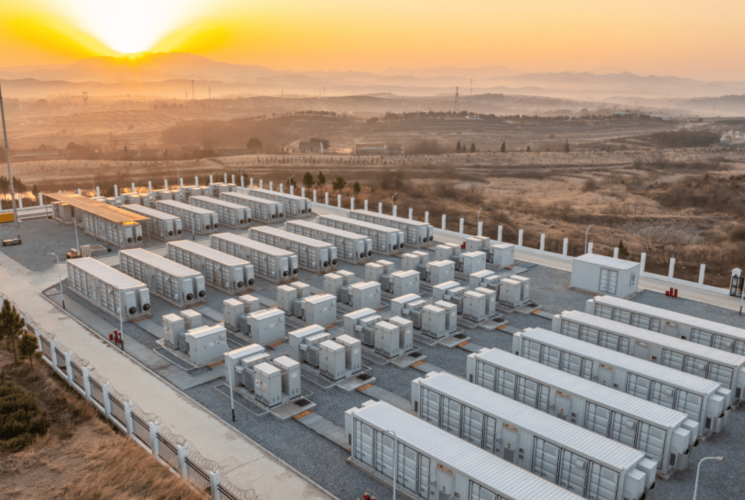The Future of Solar Power in the UK: 12 Months On

The UK solar industry has undergone dramatic change over the past year, spurred by a mix of progressive legislation, evolving grid infrastructure, and soaring demand for renewable talent. Following on from our 2024 blog, many of the projections we made are not only materialising but accelerating. With momentum building across policy, technology, and employment, solar power is increasingly seen as the cornerstone of the UK’s clean energy future. But it’s not without its challenges.
In our previous article, we highlighted the UK’s record solar capacity of 15.7 GW [1] and projected ambitious growth to 70 GW by 2035. Fast forward to 2025, and the UK’s solar capacity has grown to 17.2 GW [2], with major developments in solar-plus-storage integration. Battery Energy Storage Systems (BESS) approvals have surged, with 117 GWh of approved projects [3] now supporting grid resilience and smoothing out renewable generation.
New Legislation Driving Solar Forward
Legislative shifts are proving to be some of the most significant drivers of change in 2025. The UK government announced that by 2027, all new homes in England must be fitted with solar panels [4], a policy set to reshape residential construction norms and catalyse mass demand for rooftop installations.
At the same time, proposals to mandate solar canopies above car parks [5] aim to unlock vast untapped urban capacity with minimal land impact. Beyond the environmental benefits the initiatives bring, they also stimulate job creation across engineering, system installation, planning, and maintenance whilst helping reduce significant energy costs.
Grid Reform Unlocking Deployment
While we covered the UK’s grid connection reform in detail in a previous blog [6], it’s worth noting the impact it’s had on the solar industry. Shorter project timelines and extended asset lifespans have significantly enhanced the financial viability of solar developments, giving investors and developers increased confidence. These reforms are also broadening the skills required across the industry. From technical specialists navigating updated grid protocols to project managers steering compliance, the talent demand is becoming increasingly nuanced and multifaceted.
Planning Pushback: A Growing Hurdle
Despite national support, not all momentum is forward-moving. Local planning resistance has intensified in certain regions, with new council leaderships publicly opposing large-scale solar installations. These objections often cite concerns about landscape aesthetics, agricultural displacement, and community disruption.
This pushback poses a real challenge to project developers and highlights the need for more thoughtful community engagement strategies. It also reinforces the importance of hiring planning professionals who can mediate between policy objectives and local sentiment.
Talent Expansion: Record-Breaking Growth
The global renewable energy workforce hit a record 16.2 million in 2024 [7], with solar leading the charge. In the UK, this has translated into a steady increase in clean energy job creation, driven by both policy changes and private sector investment.
Crucially, the scope of roles in solar has broadened well beyond installers. There's rising demand for electrical engineers, environmental analysts, grid integration experts, and policy strategists. This expansion reflects the increasing complexity of solar projects and the growing need for cross-functional teams.
Recruiters now face the challenge of sourcing professionals who not only have technical expertise but also the flexibility and interdisciplinary insight required in the rapidly shifting sector.
Skills Gap: Are We Catching Up?
Despite impressive job growth, the skills gap remains a major concern. As the pace of deployment accelerates and legislation expands the scope of projects, demand for qualified workers continues to outstrip supply. Efforts to close the gap are underway, with new vocational programmes, university collaborations, and on-the-job training schemes gaining traction. An example of this is the Solar Energy Systems Network Plus [8], an initiative helping bridge the skill gap by providing fundamental training and support programmes.
Hiring in 2025 demands even more focus on accuracy. To thrive, companies and recruiters need to invest in building robust talent pipelines, nurturing early-career professionals, and fostering cross-sector collaboration.
Conclusion: A Sector on the Rise
As we move through 2025, the UK solar sector enters a pivotal period. Growth is tangible measured in gigawatts added, legislation passed, and jobs created. Yet, with every advancement comes complexity. Planning challenges, skills shortages, and the need for smarter recruitment strategies will define the sector’s trajectory in the years ahead.
For companies, developers, and recruiters alike, the task now is to anticipate what’s next and prepare accordingly. Investing in talent today means securing a resilient, innovative, and scalable solar industry tomorrow.
If you’re looking to grow and develop your Renewables division in the UK, reach out to our team of specialists who are here to support your hiring strategies.
References
-
- www.gov.uk/government/statistics/solar-photovoltaics-deployment
- www.solarpowerportal.co.uk/uk-solar-capacity-grows-1gw-year-on-year/
- www.solarpowerportal.co.uk/uk-reaches-117gwh-of-approved-bess-projects/
- www.sustainabletimes.co.uk/post/uk-government-to-mandate-solar-panels-on-all-new-homes-in-england-by-2027
- www.gov.uk/government/news/better-deal-for-motorists-and-businesses-with-solar-car-parks
- www.climate17.com/blog/how-the-uk-grid-connections-reform-is-helping-businesses-transition-to-renewable-energy-faster
- www.businessgreen.com/news/4365503/green-jobs-global-renewable-energy-workforce-surges-record-million
- https://sesnetwork.org/
Recent news and views
How Storage Retrofits Are Changing Project Development
Discover how energy storage retrofits are reshaping renewable project development, from design and interconnection to revenue models, risk management, and long-term asset value.

How to Build A Development Team in the USA
Build a strong development team with the right skills, culture, and strategy. Learn how US renewable recruitment works and how to attract, hire, and retain top talent in a competitive market.

Sustainability in Transition: A Changing Market, a Crowded Talent Pool, and the Value of Specialist Recruitment
Over the past 12 months, the sustainability market has entered a new era. The job market surrounding it has become more complex, competitive and in many cases, challenging to navigate for both employers and candidates.

How Storage Retrofits Are Changing Project Development
Discover how energy storage retrofits are reshaping renewable project development, from design and interconnection to revenue models, risk management, and long-term asset value.

How to Build A Development Team in the USA
Build a strong development team with the right skills, culture, and strategy. Learn how US renewable recruitment works and how to attract, hire, and retain top talent in a competitive market.

Sustainability in Transition: A Changing Market, a Crowded Talent Pool, and the Value of Specialist Recruitment
Over the past 12 months, the sustainability market has entered a new era. The job market surrounding it has become more complex, competitive and in many cases, challenging to navigate for both employers and candidates.

Sign up to our newsletter
Jobs, insights, resources and more. A monthly update, straight to your inbox.





